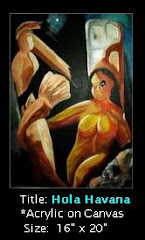In the early days of TV, when the price of sets was high enough to keep them out of a lot of American living rooms, the success of this fledgling industry was less than assured.
Coverage by broadcasting stations was spotty at best, until about 1953.
It was therefore common to try to produce TV shows for as little money as possible. Most shows were broadcast live, or delayed broadcast by Kinescope, and few ventured outside of the studio or stage.
The famous gamble by Desi Arnez and Lucille Ball to film their I Love Lucy show proved the value of reruns and syndication, but prior to that filmed shows were somewhat unusual.
Produced as a syndicated show by Hal Roach Studios in 1950, Racket Squad was an exception.
Hal Roach, who had established himself as a producer of comedy shorts in the 1920s and 1930s with Laurel & Hardy and The Little Rascals, went into Television in a big way after WWII.
Some of his studio’s more recognizable series included The Stu Erwin Show, The Gale Storm Show, and My Little Margie. As they were produced by a movie studio, they were understandably filmed, which is one reason why they are so well remembered today.
They lived on in syndication well into the 1960s
Starring Reed Hadley as Captain John Braddock, Racket Squad – like Dragnet - attempted to portray police procedures more realistically than other detective shows.
Hadley, you may remember, was the voice of Red Ryder on the radio, and would go on to star in Public Defender on TV after Racket Squad. He appeared in numerous movies and TV shows from the late 1930s until his death in the early 1970s.
Racket Squad took the unusual route of profiling `white collar’ crime. Bunko artists, grifters, and con men.
Each show opened with a prologue, delivered by Hadley:
What you are about to see is a real-life story, taken from the files of the police racket and bunco squads, business protective associations and similar sources around the country. It is intended to expose the confidence game - the carefully worked-out frauds by which confidence men take more money each year from the American public than all the bank robbers and thugs with their violence.
The `meat’ of the show dramatized some confidence game, and the police investigation and arrest. The show was part entertainment, and part educational, wrapping up with the same epilogue each week.
I'm closing this case now - or rather, the courts will - but there'll be others, because that's the way the world is built. There are people who can slap you on the back with one hand and pick your pocket with the other. And it could happen to you
Racket Squad was nominated for 2 Emmy Awards during its 98 episode run.
We’ve four episodes of Racket Squad available on the Internet Archive (and more may arrive over time).
Racket Squad The Salted Mine (1951)






No comments:
Post a Comment